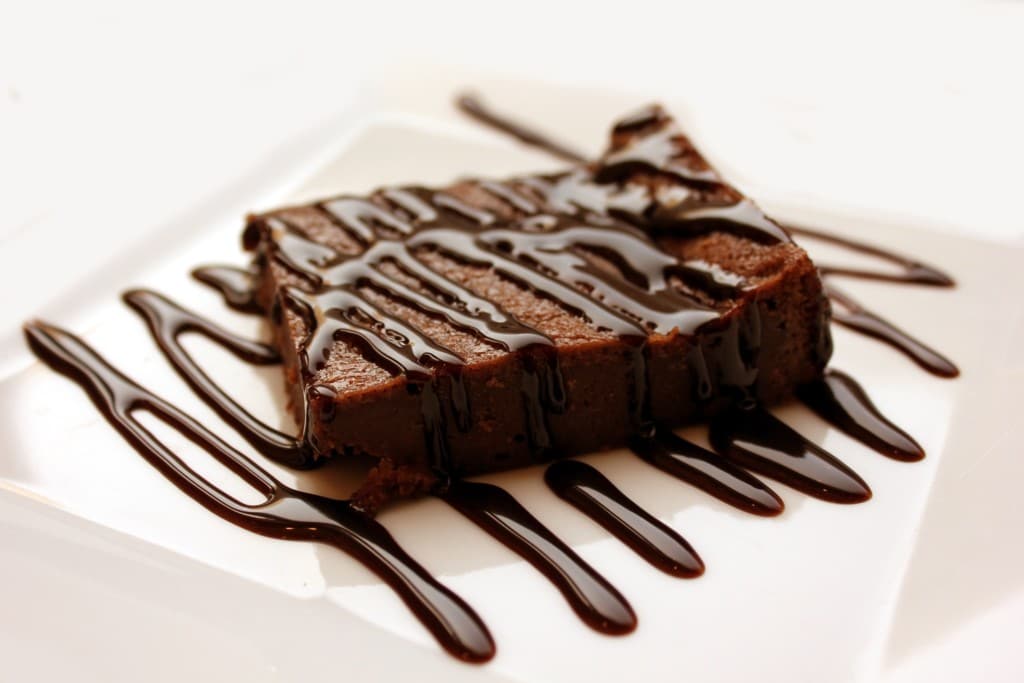Rich moist chocolate cakes, crispy doughnuts, a bag of nachos, your aunt’s famous lemon pies; put them in front of the individual, and mouths starts to water. Finish the first pleasurable piece and they automatically reach for the second, and the third… It doesn’t stop.
Does your loved one just have a sweet tooth? Or do they have a sugar addiction? Or maybe a food addiction?
What Types of Food are Addictive?
Our bodies are created with an inbuilt mechanism to desire the fat, salt and sugar that are vital to our survival. The body soon recognises and wants more of these foods that are high in fat, salt and sugar because of their mood-boosting reactions on the body. Over time we eat these foods in excess and become dependent on them for the satisfaction and happy feelings they produce. Processed foods like pizzas, ice creams, French fries, cakes, bacon, cheese, sodas, cookies, chocolates, ketchup, salad dressings, breads, and burgers are just some of these addictive foods. Any food that contains added sugars can become addictive.
Does Sugar have Addictive Properties?
Yes, sugar is addictive. A study conducted by the University of Bordeaux found that refined sugar was “4 times more addictive than cocaine”. Sugar has similar effects on the brain as those induced by opiates such as heroin. How? In short, by stimulating the brain to release the dopamine, a chemical that boosts an individuals’ mood and makes them feel good.
How Exactly does it Work?
It’s down to the human evolutionary process; humans have been designed with an inbuilt survival mechanism to select foods that have more salt, fat and sugar. In the past, children who preferred foods with higher calories in the form of fat, sugar and salt, stood better chances of survival in times of scarcity. However, at present, refined sugar is very easily available – especially in developed countries. This constitutes the main problem.
When an individual eats sugar, it is broken down into glucose and fructose in the intestinal tract. The tract has finger like protrusions called microvilli that absorb all nutrients required by the body. The microvilli absorb the broken down glucose into the bloodstream, from where these elements are distributed to all the body cells. Glucose being the main energy source for the body, it is also the preferred energy producer for the brain cells.
Our bodies though are unable to distinguish between naturally produced sugars such as those found in honey or fruits, versus the processed sugars made from beets or cane and added to our meals. Even common foods such as cereals, granola bars, oatmeal and others that appear healthy, often contain excessive amounts of added sugars in the form of corn syrup, maltose, dextrose, fructose or sucrose that trigger and support food addictions.
And eating too much sugar can cause sporadic mood boosts and crashes and the individual becomes dependent on sugar for the pleasant rush that it triggers. This pleasant rush is a result of the release of dopamine in the body brought on by the sugar.
However, dopamine surges lead to an increase in the release of insulin, which leads to a sugar crashes and more sugar cravings. So the individual eats more. Our bodies however can only recognise when glucose tells them they’re full. For added sugars such as sucrose or fructose, there is no such recognition. Since most processed foods contain sucrose, which in turn contains fructose, we do not stop eating.
The Sugar Addiction Cycle
The liver is the part of the body that normally breaks down sugar into fructose and glucose. Eating sugar stimulates your dopamine receptors to create a pleasurable feeling that’s similar to that found while having sex, taking drugs, listening to music, or drinking alcohol. And as discussed earlier, while the glucose from sugar is immediately used up by the body’s cells and creates a satiated feeling, fructose does not.
So when a person eats foods containing fructose or sucrose, these sugary foods trigger cravings for more sugar, urging them to reach for just one more cookie or slice of cake, just so that their brain can have one more feeling of pleasure aka a dopamine spike.
Soon natural biological controls for satiety have been overwhelmed by the dopamine stimuli, and the body and brain only listen to the signals from the sugar. This is because when the dopamine receptors are over-stimulated, the system changes to prevent it by down-regulating the dopamine receptors. With fewer dopamine receptors for the sugar to bind to, the effects of the sugars are reduced. So the patient has to eat more to achieve the same feeling of pleasure that they felt earlier with lesser food. And the cycle continues. Over time, the prolonged activation of the dopamine receptors as a result of eating sugary foods makes the sugar more addictive. The body soon starts to ignore the satiety feelings that curb and control hunger, and the dopamine addiction leads the individual to eat more than they should.
The more the individual eats, the more their tolerance for sugary food increases. So quite like drug addicts they start needing more sugar to get the same happy feeling that they once got from a few cookies or one slice of cake or a small chocolate bar. The circle continues to grow and expand till one biscuit has turned into the whole packet, and one slice of pie has turned into the whole pie.
What does Consuming Sugar in Excess do to Your Body?
Sugar addiction has many detrimental effects on the body. Weight gain and obesity are the most noticeable. Food addiction can also affect physical and mental performance, and cause depression, mood swings and guilt-laden feelings in the patient.
But sugar doesn’t just affect your moods and your waistline. It can also cause extreme fatigue, hormonal imbalance, strokes, high blood pressure, dementia, kidney and heart problems, Type 2 Diabetes, high cholesterol, acne, dental cavities, arthritis and bone diseases.
Sleep patterns may also be affected causing insomnia, increased drowsiness and lethargy. Sugar takes a toll on almost every aspect of the over-consumer’s life.
The Symptoms and Characteristics of Sugar Addiction
There are varying symptoms shown by sugar addicts; sometimes all together, sometimes just one. Can you answer yes to any of these questions? If yes, then you may have a sugar addiction.
Are you often tired? And do you turn to sugar for an energy boost?
Do you eat something sweet when you’re unhappy because it makes you feel better?
Do you constantly crave something sweet?
Do you get irritable if you’ve gone without food for a long time?
An individual with a food addiction tends to eat even when they are full. They find some snacks or sweets harder to stop eating than others. They might suffer from intense cravings for a particular food at certain times. If their favourite food items are not easily available, they will go to any lengths to get a hold of them.
Sugar addiction is also characterised by the inability to stop or control the urge to eat. The sugar addict might start off with just a couple of biscuits and end up eating the whole packet. They will not find the joy they once found in a single slice of cake, and need to eat a few more to get the same dopamine highs.
Sugar addicts may choose to eat rather than exercise or spend time in fitness related activities or other activities they may have enjoyed taking part in earlier. This may also lead to obesity. Addicts may also choose food over spending time with family and friends. Closet addicts may stash sweets and snacks in a place no one else knows, so that they can eat them in secret.
Do You or Your Loved One have a Sugar Addiction?
Take the quiz below and find out if you or your loved one needs to get treatment for your sugar cravings.
1. Do you grab sweets or desserts when anxious or stressed?
A. Never
B. Sometimes
C. Always
2. There’s a candy bowl sitting at the reception desk at work or at the doctor’s office. How many do you take?
A. None
B. One
C. A handful
3. How often do you drink sodas or beverages (including diet drinks)?
A. A few times a month
B. A few times a week
C. Every day
4. How much sugar or sweetener do you add to your tea or coffee?
A. None
B. A teaspoon
C. Two teaspoons
5. How often do you eat cookies, pretzels, cakes, tarts or pastries?
A. A few times a month
B. A few times a week
C. Every day
6. What do you put ketchup on?
A. Nothing
B. Only fries
C. Everything
7. Do you plan on eating just one cookie or small piece of cake and then find yourself eating more?
A. No
B. Sometimes
C. Every time
8. What do you usually have for breakfast?
A. Eggs with veggies and toast
B. Yogurt with fruit or oatmeal
C. Muffins, cereals, or cookie
9. You’re thinking about your favourite sweet. Do you go get it?
A. No. Maybe wait till the weekend.
B. I’ll eat it now and skip this weekend.
C. I’ll eat it now and again on the weekend.
10. Can you live without eating something sweet after lunch or dinner?
A. Yes
B. Most of the time
C. No
11. Do you hide sweets and snacks to eat them later?
A. No.
B. Sometimes. If there’s just one piece of my favourite cake or chocolate left, I hide it so no one else finds it.
C. Yes, I have a secret stash of my favourite sweets that no one else has access to.
12. While indulging in sweets and snacks, do you tell yourself that this is the “last time”?
A. No. I don’t really indulge.
B. I try to cut back on sugar sometimes, but I don’t say it’s the last time. Rather I tell myself that I’ve finished my quota for this week, and I can indulge again next week.
C. Yes, I tell myself that every time, and feel bad when I end up indulging again.
Now, let’s add up the scores and see how you did.
If you got mostly As, you are not addicted to sugar. Keep doing what you’re doing and stay away from unhealthy foods.
If you got mostly Bs, you have your sugar cravings under control. You eat sweets and sugary foods when you feel like it but have power over sugar. Sugar doesn’t have any power over you. You know when to indulge your food cravings, and when not to.
If you got mostly Cs, then it’s very likely you have a sugar addiction. You need to work on getting their eating habits under control.
Quitting sugar cannot be instantaneous though. Sugar addicts cannot just flip a switch and stop their food addiction. Suddenly stopping all sugary foods will cause withdrawal symptoms. The individual needs to phase out their food induce dopamine addiction under guidance from a trained dietician or doctor.
Treatment for Food Addiction
As with any other forms of addiction, patients suffering from sugar or food addiction need to identify the root cause and the triggers that make them eat more than they intended. By delving into a client’s history, the counsellor will help them to find out when and why they started resorting to food for their dopamine highs, and then help them with a phased out plan to detoxify. The patients will be taught to notice their triggers and equipped with the mental skills to respond to them in a more positive way.
Contact The Dawn Thailand Rehab Centre
At The Dawn Rehab we can help you to overcome sugar addiction and food addiction while learning a healthier response to food cravings. Our fully qualified counselling team have decades of experience treating a wide range of addictions as well as mental health issues such as depression, anxiety and trauma. We use a range of highly effective treatment models including CBT (Cognitive Behavioural Therapy), Contingency Management and NLP (Neuro Linguistic Programming). These Western therapies are combined with the very best Eastern practices such as therapeutic massage, guided meditation and gentle yoga. In addition, we have a full equipped gym and personal training sessions to help you get fit and active and develop positive habits to take with you when you leave treatment. Finally, we have delicious Thai and international food which is healthy and nutritious.
For an informal chat to learn how the The Dawn can help you or a loved one with sugar or food addiction, contact us today to speak with The Dawn’s addiction experts
Related Posts
 Dopamine Deficiency – How It Ties Into Mental Health and Addiction
Do you wake up each morning and feel as though there is no more spark in your life? If so, you might have what is known as dopamine deficiency. Dopamine...
Dopamine Deficiency – How It Ties Into Mental Health and Addiction
Do you wake up each morning and feel as though there is no more spark in your life? If so, you might have what is known as dopamine deficiency. Dopamine...
 Is Food Addiction Really an Addiction? 6 Similarities to Drug Addiction
The global obesity epidemic has spurred further research into what compels people to overeat, finding that unhealthy relationships with food bear some striking similarities to drug addiction. Understanding the parallels...
Is Food Addiction Really an Addiction? 6 Similarities to Drug Addiction
The global obesity epidemic has spurred further research into what compels people to overeat, finding that unhealthy relationships with food bear some striking similarities to drug addiction. Understanding the parallels...
 Healthy Food, Healing Food: How the Right Nutrition Can Help Your Recovery
The foods we choose to eat play a major role in the way we feel, both physically and mentally. For those in recovery, a healthy diet can help you come...
Healthy Food, Healing Food: How the Right Nutrition Can Help Your Recovery
The foods we choose to eat play a major role in the way we feel, both physically and mentally. For those in recovery, a healthy diet can help you come...
 Dopamine Addiction: How Addicts Are at the Whim of Pleasure Chemicals
In pop-culture, dopamine is the media-hyped brain chemical responsible for your addiction to gambling, cake, sex, drugs, love and rock and roll. It seems straightforward: do something pleasurable, get that hit...
Dopamine Addiction: How Addicts Are at the Whim of Pleasure Chemicals
In pop-culture, dopamine is the media-hyped brain chemical responsible for your addiction to gambling, cake, sex, drugs, love and rock and roll. It seems straightforward: do something pleasurable, get that hit...







